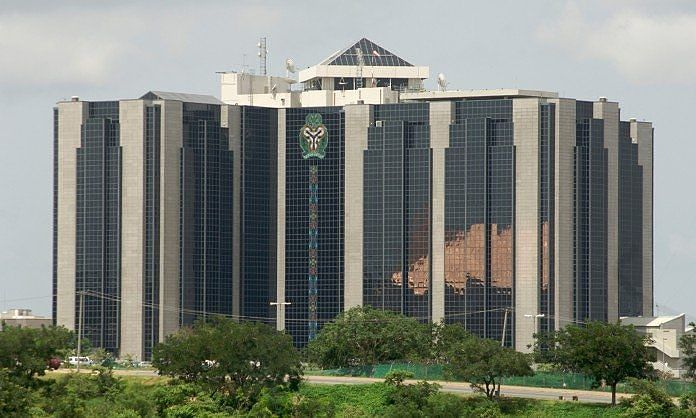Of the 191.4 million total bank accounts in the country as at December 31, 2021, which is the latest figure released by the Nigeria Inter Bank Settlement System (NIBSS), 133.5 million are active meaning that 57.9 million bank accounts are dormant.
A bank account in the country is deemed dormant if there has been no activity on the account for up to one year. In such a case, the account holder will have to write the bank and present valid documents before such an account can be reactivated.
The rising number of inactive accounts in the country along with the dormant funds contained therein has been a cause of concern for stakeholders in the financial industry. In 2021, the federal government had signed the 2020 Finance Act which will allow the government to access unclaimed dividend and dormant account balances.
According to the Finance Act 2020 the funds will be made available as special credit to the federal government through the Unclaimed Funds Trust Fund. “Any unclaimed dividend of a public limited liability company quoted on the Nigerian Stock Exchange and any unutilised amounts in a dormant bank account maintained in or by a deposit money bank which has remained unclaimed or unutilised for a period of not less than six years from the date of declaring the dividend or domiciling the funds in a bank account shall be transferred immediately to the trust fund,” the act read.
Consequently, the Central Bank of Nigeira (CBN) had released an exposure draft guideline for the Management of Dormant Accounts, Unclaimed Balances and Other Financial Assets in Banks and Other Financial Institutions In Nigeria.
The guideline is an upgrade on the guidelines issued in 2015 to curb abuses in the operation of dormant and inactive accounts and set operational standards. According to the apex bank, to strengthen its oversight functions on the management of dormant and unclaimed balances, the Banks and Other Financial Institutions Act, 2020 (BOFIA) made explicit provisions on unclaimed funds or abandoned property in FIs under the regulatory purview of the CBN.
The objectives of the guidelines, among others, are to identify dormant accounts/unclaimed balances and financial assets with a view to reuniting them with their beneficial owners; hold the funds in trust for the beneficial owners; standardize the management of dormant accounts/unclaimed balances and financial assets; and establish a standard procedure for reclaim of warehoused funds.
According to a circular accompanying the exposure draft, the guideline was in response to requests from banks and other stakeholders for the CBN to clarify the procedures for the management of dormant and inactive accounts by banks in the country.
The circular which was signed by the director, Financial Policy and Regulation Department of the apex bank, Chibuzor Efobi, also called for inputs which should be sent within three weeks. The draft states that banks and Other Financial Institutions (OFIs) are expected to transfer all unclaimed balances in accounts that have been dormant for up to 10 years into and Unclaimed Balances Trust Fund (UBTF) pool account which will be domiciled at the CBN.
They are also expected to transfer unclaimed balances quarterly, not later than 15 days of the first month of the subsequent quarter; and retain all records of communication on the management of dormant accounts for a minimum of 10 years.
Banks and OFIs, by the guideline are to “maintain records of the beneficiaries of the unclaimed balances warehoused in the UBTF Pool Account; invest the funds in Nigerian treasury bills (NTBs) and other securities as may be approved by the ‘Unclaimed Balances Management Committee’; and refund the unclaimed funds to the beneficiaries not later than 10 working days from the date of receipt of the request.”
The exposure draft notes that banks including other financial institutions are saddled with the responsibility of contacting account holders whose account are dormant and are also required to publish the list of dormant accounts on their website.
Asides these, financial institutions are also saddled with the responsibility of monitoring “inactive accounts and notify the customers as well as protect such accounts from unauthorised usage; Establish procedures that will ensure continuous contact with customers to reduce the incidence of inactive/dormant accounts;
“Maintain records of procedures and periodic efforts to contact customers with inactive accounts; advise customers, in writing, on the need to communicate changes in their names, addresses, phone numbers, emails and next-of-kin.”
Financial institutions are also to bear the costs of maintaining inactive and dormant accounts as well as contacting the customers; render quarterly reports on dormant accounts in a prescribed format to Banking Supervision Department and Other Financial Institutions Supervision Department, CBN.
They are to “continue to reflect dormant account balances as deposit liabilities and such balances, where applicable, shall continue to earn interest until they are transferred to CBN. “Maintain a register for funds transferred to CBN for reclaim and audit trail. Publish, on their websites, details of all dormant accounts, six months prior to their eligibility for transfer to CBN. However, other financial institutions (OFIs) without websites shall publish same on their Association’s website.
“Publish the list of dormant accounts holders in at least two national daily newspapers, except for unit microfinance banks, which shall publish in their premises. Information to be published shall include the name, address of the branch, and next-of-kin of account holder. It should also be stated that the account has been transferred to the register of dormant account.”





